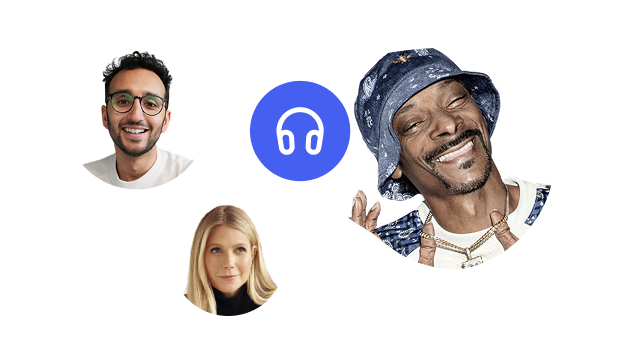Dyslexia is one of the most common learning disabilities, affecting about ten percent of the population. Nonetheless, noticing even the early signs of dyslexia can be pretty hard on us, especially if we’re unaware of what this disability actually entails and if we are not familiar with potential treatments.
Dyslexia is more than manageable nowadays, thanks to our advancements in assistive technology and our increasingly modern approach to education, learning, and healthcare. Of course, the first step to overcoming dyslexia is always to contact a certified clinic that can run screener text and issue questionnaires. However, there are some screening tools you can use yourself in the meanwhile, even online.
In the following paragraphs, we’ll guide you through the symptoms of this learning disorder, some of the dyslexia screening processes, as well as additional resources that will help you combat it.
Dyslexia signs in adults
Dyslexia manifests differently in each individual, so proper assessment is needed if we want to be certain we’re dealing with dyslexia. However, there are some symptoms that appear so often that we can basically see them as a sure sign of dyslexia. Those include:
- Bad spelling and poor literacy skills
- Word recognition issues
- Impaired language processing abilities
- Impaired phonological awareness
- Lagging reading fluency or reading skills beneath one’s grade level
- Frequent use of nonsense words
- Trouble learning foreign languages
- Issues with rapid naming and sight word recognition
- Inability to follow reading instructions
- Loss of rhyming ability
Why should I get tested?
It is always wise to try and do everything you can to catch dyslexia as soon as possible. Since reading difficulties can and do affect our professional, academic, and personal lives, they often damage our self-esteem and hurt our productivity. So, the sooner we can get a sure diagnosis of dyslexia, the sooner we can start working on accommodating our needs and coming up with solutions that will help us keep up with our daily tasks.
A quick diagnosis is, of course, important in young children and adolescents, too — perhaps even more important. First-grade students, for example, will need every bit of help they can get once they start learning how to read and write, so classroom remediation and special education are often a must. High school students, on the other hand, will need extra help if they want to pass their English exams and enroll in college.
What do dyslexia assessments evaluate?
Dyslexia tests can take a long time and are conducted in quiet, peaceful environments free of noise and distractions. The specifics will, of course, depend on the patient. After all, we cannot test dyslexic children the same way we test adults, and we cannot test each adult the same way, either. But, the test will most likely check for:
- Phonological processing
- Phonemic awareness
- Reading problems
- Reading comprehension
- Language skills
- Word recognition and decoding
- Oral reading fluency
- Motor skills (calligraphy, handwriting)
Evaluating your performance might take some time, so you’ll most likely have to wait for a few days for your results. In the meanwhile, you can do some tests yourself, for example, the Shaywitz DyslexiaScreen test.
When to test
The best time to test for dyslexia is right now. Early intervention is crucial, and since there are no eligibility specifics, anyone can ask for a test. The research shows that reacting early to any specific learning disability shows exceedingly better results down the line, ensuring no loss of motivation and fewer or no further impairments.
Who can diagnose?
It is important to stress that while you can take tests and download screening apps yourself, you will still need to book an appointment with a knowledgeable psychologist, licensed educational psychologist, diagnostic specialist, or learning disability specialist. After all, you cannot give yourself an official diagnosis, and you’ll need proper documentation if you want your disability to be recognized.
How much does it cost?
Testing for learning difficulties can vary in price, depending on where you’re getting your test done and how. Visiting a high-profile specialist in New York City and doing a test at home will not cost the same. However, you can expect to pay somewhere between $500 and $2000 for a professional assessment.
Online assessments
There are a lot of online screening tests, such as those provided by The International Dyslexia Association Assessment for Adults, Dyslexiaida.org, IDRFA, etc. You can also try some home tests like Towre-2 or the Comprehensive Test of Phonological Processing that you can order together with grading guides. There is also the Woodcock-Johnson test.
Helpful resources for dyslexics
Since dyslexia is so prevalent, people have come up with plenty of rather useful tools that can help people engage with the written word more easily.
For example, you can use Grammarly, a free writing assistant, to check for spelling and style errors. In addition, you can use some apps like NumberShark to practice learning and reading numbers if your dyslexia affected your numerical skills too. If you have trouble taking notes, try something like Sonocent Audio Notetaker, an app that captures audio and mixes it with accompanying slides-
Speechify
Finally, we’d like to recommend a text-to-speech tool: Speechify, the number one piece of assistive technology for dyslexics. This app can be used individually, in education programs, in corporate environments, and everywhere else, thanks to its superb flexibility and integration features.
Speechify was first developed specifically for those suffering from dyslexia, so its algorithms work on evidence-based research and rely on most sophisticated machine learning to make sure its AI voices are lifelike and expressive. You can rely on Speechify to practive phonics and listening, and you can use it to convert your reading and working material into audiobooks. You can even scan physical copies and have them narrated to you by one of the app’s AI narrators.
Speechify is also great for people with impaired executive functioning and cognitive abilities, as well as disorders like ADHD, and it’s got staunch supporters in virtually every school district.




